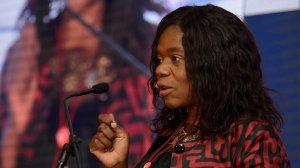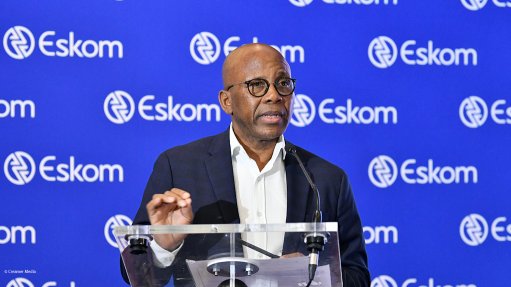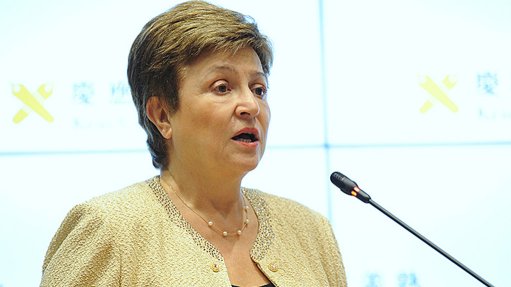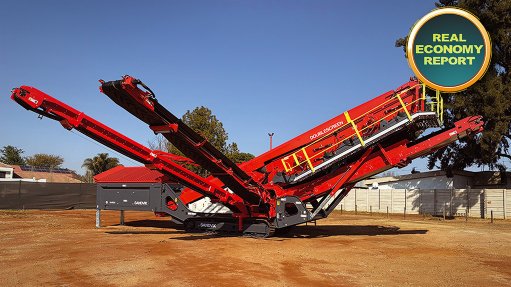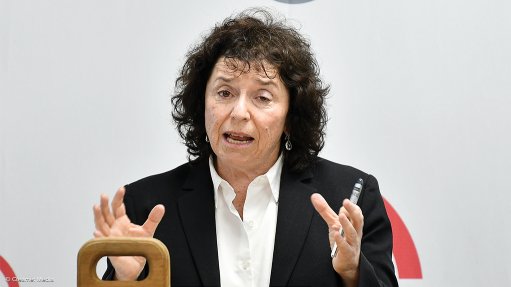Good corporate citizenship in a post-State-capture South Africa

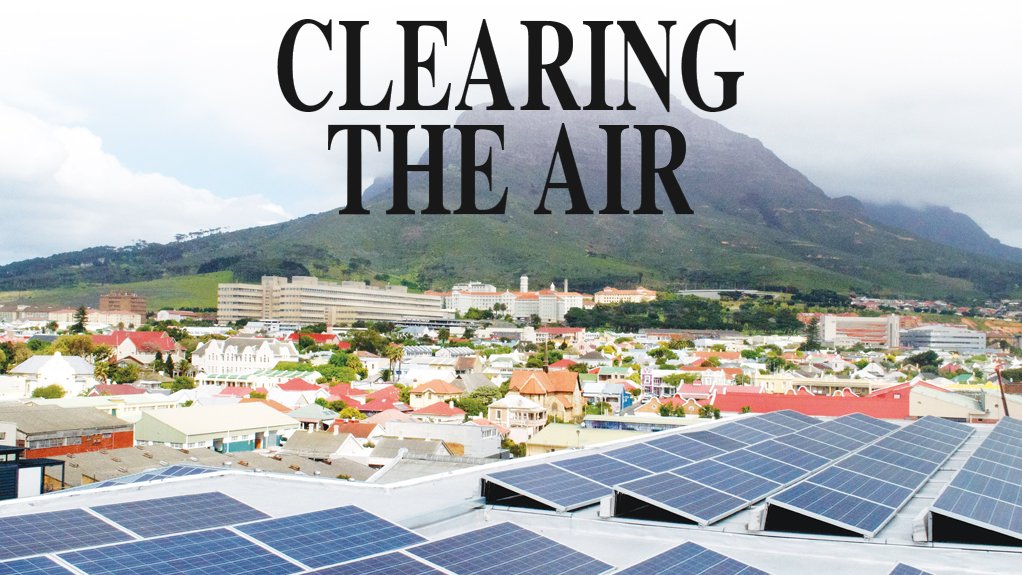
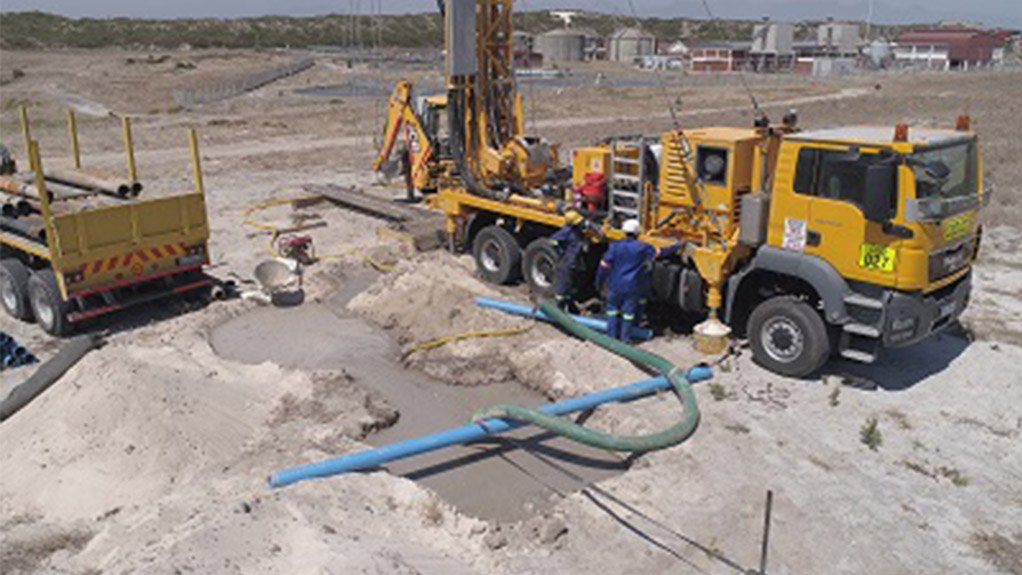
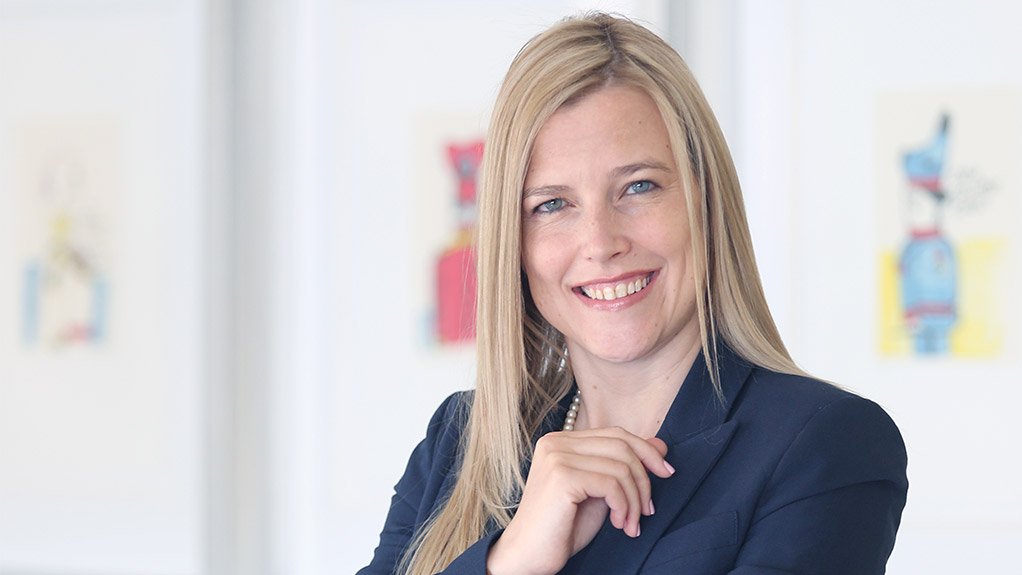


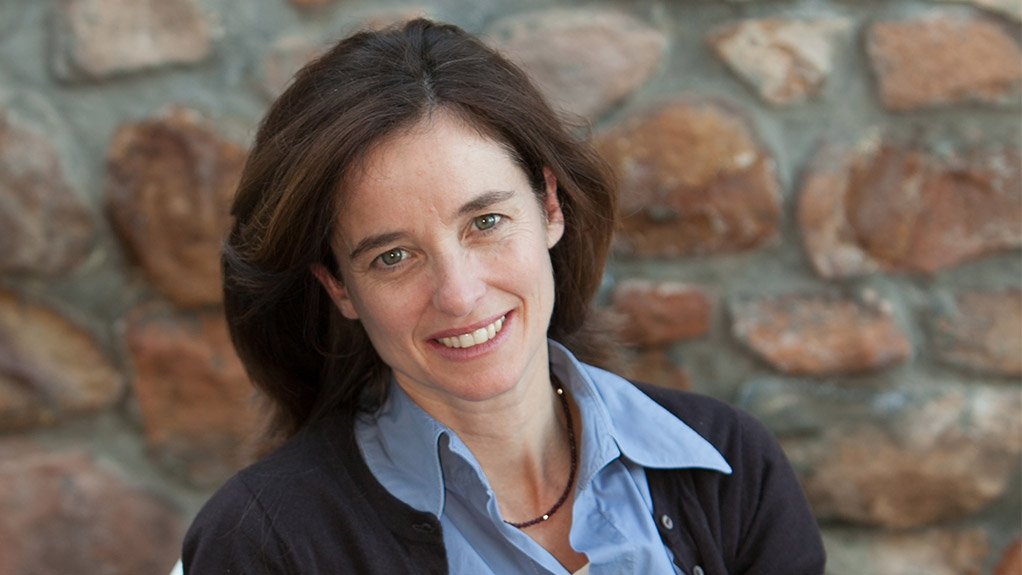
WATER WARY Hard lessons have been learnt by business from the recent drought in Western Cape
MELANIE DE NYSSCHEN South Africa’s reputation as an investment destination has ben tainted by State capture and governance failures
PARMI NATESAN Governing bodies have the challenge of steering their organisations to create value in a sustainable manner
THULI MADONSELA Business has an obligation to leverage its influence for good
TATJANA VON BORMAN Paying attention to innovations in business models and being ready to adapt will be key to navigating the climate challenge
A string of corporate governance failures and climate change challenges have cranked up the pressure on companies to become better corporate citizens and take care of the environment they are operating in.
The renewed emphasis on governance and sustainability is not limited to the private sector, coinciding as it does with a change in South Africa’s political climate, as well as with nascent moves to clean up government departments and State companies.
Indeed, President Cyril Ramaphosa has promised to tackle the problems facing State-owned enterprises, including rooting out corruption, restoring their financial position and rebuilding and strengthening governance. Public Enterprises Minister Pravin Gordhan has followed up by appointing interim Transnet and Denel boards, as well as Phakamani Hadebe as Eskom’s new CEO.
South Africans are keeping a closer watch over both government entities and companies, aware that the fog of corruption, including governance-threatening State capture, still needs to be cleared. As part of their response to this ‘New Dawn’, companies are also assessing their environmental, social and governance factors
“We have to own up to the role members of the business community – think McKinsey, SAP, KPMG and others – have played in the facilitation of corrupt behaviour by government officials. This has caused immeasurable damage to State entities and institutions core to sustainable economic growth, stifled the much-needed inflow of foreign investment, and generally tainted South Africa’s reputation as an investment destination of choice,” says Bravura Capital corporate finance principal Melanie de Nysschen.
She argues that recent public and private failures – such as the Eskom and South African Airways bail-outs, Net1’s Cash Paymaster Services problematic management of the distribution of social grants, and value destruction at JSE-listed Steinhoff International – underline the importance of the proper application of corporate governance principles. The strong message is starting to have an impact.
“The very vocal and concerted effort by society at large, business and government, supported by a strong, locally evolved, corporate governance framework, provides a solid foundation from which South Africa can self-correct over the short to medium term,” says De Nysschen.
A number of guidelines and laws are in place to help ensure that companies are good corporate citizens. The recently amended King IV Code aims to encourage true ethical and effective leadership, rather just ticking boxes for the sake of compliance, says Centre for Corporate Governance of the Institute of Directors in Southern Africa executive director Parmi Natesan.
King IV is centred on the values of “integrity, competence, responsibility, accountability, fairness and transparency”. But, while its intentions are good, King IV remains a voluntary code.
Ethical Culture
“Both laws and codes can quite easily be circumvented by people who wish to do so, or who are only concerned with ‘not being caught’. It is for this reason that King IV places so much emphasis on creating an ethical culture and mindset. When this mindset is present, individuals and companies will seek to act in the right way – even when nobody is looking – because they understand that to do so makes good business sense and reduces risk,” says Natesan.
The survival and success of organisations are intertwined with the economy, society and the natural environment.
“Governing bodies have the challenge of steering their organisations to create value in a sustainable manner, making more but with less to meet the needs of a growing population and the reality of dwindling natural resources,” Natesan tells Engineering News.
“No governing body today can say it is not aware of the changed world in which it is directing an organisation. Consequently, a business judgement call that does not take account of the organisation’s business context could lead to a decrease in the organisation’s value,” says Natesan.
Investors are also starting to realise that it pays to be more sustainable.
Through their influence on society, companies also have a wider responsibility.
“Business is in a position of power and privilege and business has a voice, in the same way that, when you become an advocate, you have a voice. It also means that you have an obligation to leverage your influence for good,” former Public Protector Thuli Madonsela told the recent Trialogue Business in Society conference, in Johannesburg.
Beyond CSI
Some companies may be tempted to channel their good deeds mostly through corporate social investment (CSI), but Madonsela says even the most vigorous CSI effort cannot compensate for a business that is underpaying its employees or suppliers, or overcharging its customers.
Health and environmental concerns are also top of mind, particularly in the wake of the listeriosis outbreak, which led to the deaths of over 200 people. Traces of the listeria strain were found at Tiger Brands’ Enterprise factory, in Polokwane, setting in motion the closure of factories, the recall of meat products, at least one class-action suit and a heavy blow to the company’s reputation.
But there are signs that some companies and industries are getting it right, or at least are well on the road to doing so.
Companies are increasingly disclosing their targets and actions on sustainability, as borne out in the FTSE/JSE Responsible Investment Index series, which promotes corporate sustainability practices, as well as the Carbon Disclosure Project (CDP), a not-for-profit organisation that works to transform the way the world does business to prevent climate change and protect natural resources.
The National Business Initiative, which is the CDP’s lead partner in South Africa, reports a significant improvement in company disclosure and performance since the CDP report launched in 2007. South African companies have often been ahead of their global peers. However, the most recent report showed signs that momentum was slowing.
While vital to cutting carbon emissions, climate change can be difficult to get a handle on.
“The consequences of climate change are complex and unpredictable and therefore extremely difficult to predict and respond to. It requires a different way of thinking and risk identification,” says World Wide Fund for Nature (WWF-SA) policy and futures unit senior manager Tatjana von Borman.
“What is increasingly clear is that informed response or at least the readiness to respond requires rigorous and consistent information and data sets that increase visibility into all dimensions of the business, markets and production contexts. It also means paying attention to innovations in business models and being ready to adapt in order to ensure long-term viability.”
Ripple Effect
Von Borman says some adaptive and resilient companies are seeing the ripple effect of being sustainable. They are also getting their value chains in order. An excellent example is carpet company Interface, which has developed a full, circular, take-back model for its products.
WWF-SA has been working with Woolworths to meet more stringent sustainability targets and to use fresh water and energy more efficiently in its supply chain. It also ensures the sustainable source of seafood and dairy and beef products, as well as sugar and palm oil.
“Together, we are setting measurable targets to reduce environmental impacts in relation to carbon, water, land use and biodiversity, and have supported the innovative market mechanisms to incentivise sustainable agricultural practices,” says Von Borman.
She tells Engineering News that getting companies within a sector to work together for the greater good is more challenging.
“It’s harder to take everyone along and make sectorwide change rather than individual company commitments. But we are seeing indications of this. One example is the Responsible Fisheries Alliance, where the five largest fishing companies are working together with the WWF and Birdlife to address ecological health of the marine resource on which they all depend.”
Kumba Iron Ore, which is a constituent of the FTSE/JSE Responsible Investment Top 30 Index, has strongly supported the view that mining companies that apply corporate governance principles can benefit the economy.
“This is commendable in a sector that has largely been on the receiving end of global and local challenges, including geopolitical turbulence,” says Van Nysschen.
Energy & Water
Wind and solar power and other renewable-energy technologies are pointing to a more sustainable lifestyle. A trend leader is the Black River Park Solar Power Project, in Cape Town. The office park has one of the biggest roof-mounted integrated photovoltaic plants in the world, capable of producing nearly two-million kilowatt hours of power each year from its 5 500 modules.
Hard lessons have also been learnt from the recent drought, particularly in the Western Cape.
Water Research Commission CEO Dhesigen Naidoo says it is encouraging to see how more companies are recognising the value of being sustainable.
“It’s driven by a conscientiousness of caring for the environment, and also around genuine business risk. Sustainability indices in many exchanges around the world have become the core parameter of a new investment formula.”
For the past eight years, water crises have been among the top five risks in the World Economic Forum’s Global Risks Report. This has filtered through to the corporate world.
Naidoo says companies like Nestlé and Sasol, which use a lot of water, have been showing increasing interest in the Water Research Commission’s work, while other less-water-intensive companies like Vodacom want to learn more.
“This has been hugely encouraging. There’s also been a change of heart around government on what the water model is, as well as the opportunities to look at water as a commodity with investment potential.
“We are a net importer of technology. We need to have some level of self- sufficiency and see how we can become a global supplier of services as Japan, Korea and Israel have done,” suggests Naidoo.
Investing in more sustainable practices could have long-term spin-offs.
Madonsela cites the African proverb: ‘it takes a village to raise a child’, stating that all South Africans, including business, have an important role in driving social justice.
Being proactive and innovative in the way companies handle water, waste and energy could also have a lasting effect on the communities in which we live and work.
Comments
Press Office
Announcements
What's On
Subscribe to improve your user experience...
Option 1 (equivalent of R125 a month):
Receive a weekly copy of Creamer Media's Engineering News & Mining Weekly magazine
(print copy for those in South Africa and e-magazine for those outside of South Africa)
Receive daily email newsletters
Access to full search results
Access archive of magazine back copies
Access to Projects in Progress
Access to ONE Research Report of your choice in PDF format
Option 2 (equivalent of R375 a month):
All benefits from Option 1
PLUS
Access to Creamer Media's Research Channel Africa for ALL Research Reports, in PDF format, on various industrial and mining sectors
including Electricity; Water; Energy Transition; Hydrogen; Roads, Rail and Ports; Coal; Gold; Platinum; Battery Metals; etc.
Already a subscriber?
Forgotten your password?
Receive weekly copy of Creamer Media's Engineering News & Mining Weekly magazine (print copy for those in South Africa and e-magazine for those outside of South Africa)
➕
Recieve daily email newsletters
➕
Access to full search results
➕
Access archive of magazine back copies
➕
Access to Projects in Progress
➕
Access to ONE Research Report of your choice in PDF format
RESEARCH CHANNEL AFRICA
R4500 (equivalent of R375 a month)
SUBSCRIBEAll benefits from Option 1
➕
Access to Creamer Media's Research Channel Africa for ALL Research Reports on various industrial and mining sectors, in PDF format, including on:
Electricity
➕
Water
➕
Energy Transition
➕
Hydrogen
➕
Roads, Rail and Ports
➕
Coal
➕
Gold
➕
Platinum
➕
Battery Metals
➕
etc.
Receive all benefits from Option 1 or Option 2 delivered to numerous people at your company
➕
Multiple User names and Passwords for simultaneous log-ins
➕
Intranet integration access to all in your organisation






